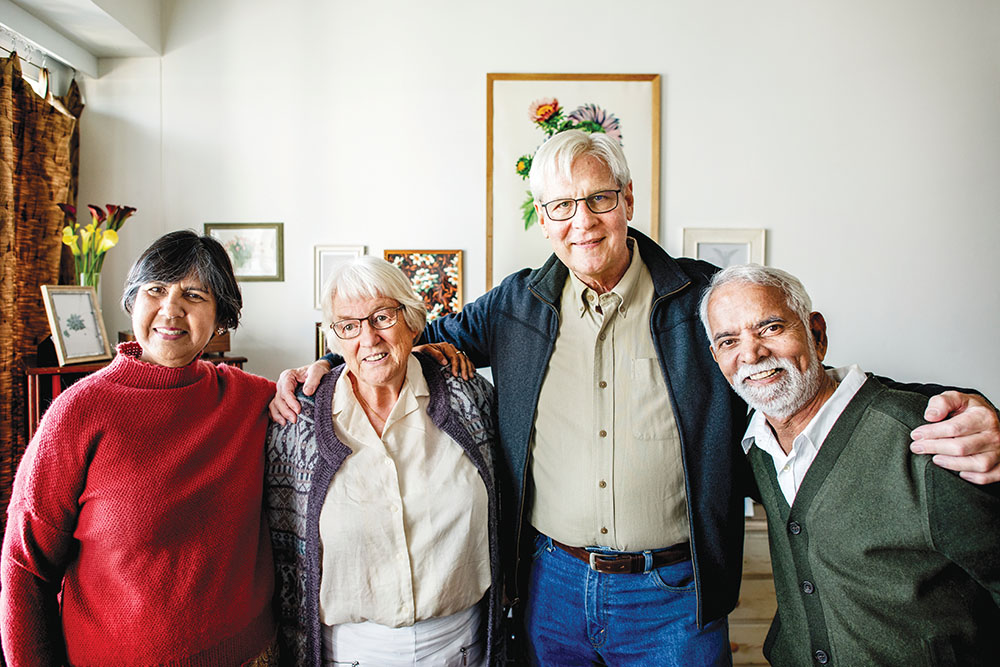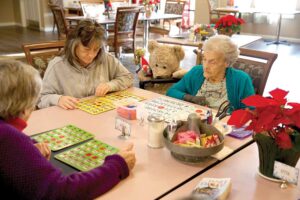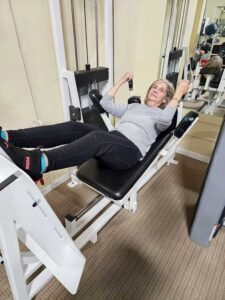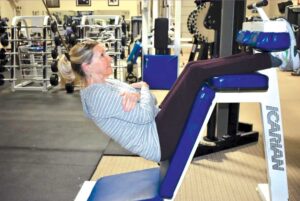Founded in 2012, Oak Street Health is a network of value-based primary care centers for adults on Medicare and the only primary care provider to carry the AARP name. Our innovative care model goes beyond typical primary care to provide patients with comprehensive preventive care that strives to keep the mind and body healthy. Oak Street Health believes in treating the whole person—physically and emotionally—so behavioral health services can be integrated into your tailored care plan in one convenient location.
Stress occurs throughout life, and many older adults experience stressful situations. Especially during difficult times, you might notice negative physical or mental health symptoms as a result of some unhealthy habits and behaviors. Self-care can reduce the impact of tension and help you create a more relaxed and positive life. Oak Street Health recommends incorporating these strategies into your everyday life to help minimize stress and boost your overall mental health. You can mix and match these self-care tips to discover the ones that work best for your unique needs.
Impact of Stress on Seniors
People experience stress at all ages, including during their senior years. Your stress might be an occasional difficult moment. Or perhaps you’re dealing with chronic stress or stress that persists for weeks, months, or longer. Concerns about health, finances, and relationships can increase stress. Facing a change, such as the loss of a partner or a new living situation, can also be distressing.
Mental Health Symptoms
Positive mental health in the elderly is important, and stress can negatively impact your mental wellness. For example, when you’re stressed, you might have a negative outlook on life. You may also be anxious or forgetful, or find yourself feeling sad and even crying more. Tension can also make you irritable, which in turn makes it harder for you to concentrate. In extreme cases, some people even experience panic attacks related to stress. All these symptoms can negatively impact your mental health
Physical Health Symptoms
Often, stress leads to physical symptoms that can affect your overall body health. Tension headaches and back pain can develop during stressful times. Some seniors experience heart palpitations or chest pains, indigestion, dizziness, muscle tension, or jaw pain. Chronic stress can even weaken your immune system. Ongoing stress can also worsen chronic health conditions. It can increase blood sugar and make diabetes worse. Seniors living with stress are also at increased risk of heart disease or high blood pressure.
Behavioral Symptoms
Stress can also lead to negative behaviors. People have different ways of dealing with stress. Some might overeat, or drink too much alcohol. Others may develop insomnia, or sleep too long. Practicing self-care for seniors can help you reduce stress and avoid these harmful behaviors.
Self-Care Tips for Mental Health
It’s important to manage stress in older adults. When left unmanaged, stress can have long-term negative effects, especially for seniors. Fortunately, many self-care tips can help you reduce your stress, brighten your outlook, and improve your overall health. Learn more about effective ways to boost self-care for seniors.
Stay Active – Regular physical activity can reduce stress. So staying active helps improve your mental health. Exercise reduces stress hormones called cortisol and adrenaline. Physical activity also encourages your body to produce endorphins, which naturally elevate mood. A daily walk or a group fitness class can help minimize stress in your life. Chair exercises or stretching are other low-impact ways to keep your body moving.
Connect With Family and Friends – Isolation can trigger feelings of sadness or stress, so it’s important to stay connected. If you’re feeling anxious, reach out to family and friends. Invite the grandchildren over, meet your friends for brunch, or go on a walk with a neighbor. Connecting with others can fulfill your emotional needs and ease symptoms of stress.
Practice Mindfulness – Regular mindfulness activities can boost your mood and reduce stress. Mindfulness can also help you manage chronic pain, which could also be a source of stress. Mindfulness involves being aware of the present moment, staying focused, accepting life, and paying attention to your own feelings. There are several ways to practice mindfulness in your daily life. One method is to practice mindful breathing, focusing your attention on your breath and keeping it steady. Positive reflection is another type of mindfulness. In this exercise, you direct positive thoughts to yourself and others. Other relaxation activities, such as yoga or tai chi, can help you be more mindful, focused, and accepting of your place in life.
Engage With Like-Minded Seniors – Shared experiences and activities can make you feel less isolated and stressed out. If you’re facing a tense situation, look for a support group to help you navigate it. Whether you are grieving the loss of a loved one or facing a new diagnosis, you can find a group to give you the support you need to get through these difficult times. Oak Street Health clinics have community rooms, which are spaces where patients and community members can gather for social and emotional connection. Oak Street Health’s community rooms promote patients’ behavioral health by
offering a safe, engaging place to interact with other seniors and staff members and participate in fun, interactive activities such as chair yoga and Zumba. Visit oakstreethealth.com/events to find upcoming events and to RSVP.
Exercise Your Brain – Stimulating your brain can also help minimize tension and boost mental health in the elderly. Discover many ways to exercise your brain, all from the comfort of your home. You can complete a crossword or sudoku puzzles to challenge yourself. Read the newspaper or part of a book every day. Play card games with family and friends. You can also be creative by drawing, painting, or knitting. These activities are easy to complete, they keep your brain engaged and focused, and they all reduce stress.
Spend Time Outdoors – Simply being outdoors can help you reduce stress. Enjoy your morning coffee or tea on your patio, or go for an afternoon walk. Visit local parks to soak in the beauty of nature. Feeling the sun on your back and the wind in your hair can serve as natural stress relief.
Explore a New Hobby – Stay active and minimize stress by trying a new hobby. Whether you want to take up watercolor painting or plant a small garden, a new hobby gives you something positive to focus on. You can even seek out group classes where you can socialize with other seniors while you learn.
Establish Healthy Habits – Healthy habits can also help you diminish your stress level. Make sure you’re getting at least eight hours of sleep every night. Drink plenty of water, and choose a healthy and balanced diet. You can even incorporate some foods that can help you naturally de-stress. Focus on whole foods, such as fruits and vegetables, instead of processed foods to reduce cortisol levels because high cortisol levels are associated with more stress.
Self-care tips can effectively minimize the stress in your life and improve your mood. Even when stressful situations arise, you can face them confidently, knowing that you have the tools you need to improve your outlook.
To learn more about Oak Street Health Peoria, go to oakstreethealth.com. Or, visit your local Oak Street Health clinic at 801 West Lake Avenue, Suite 200 in Peoria.










